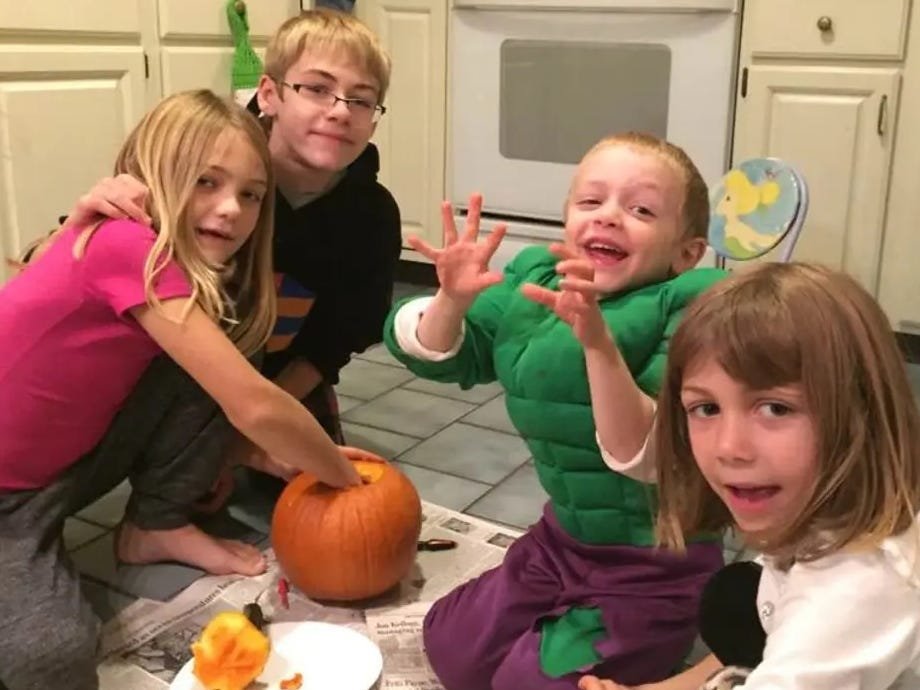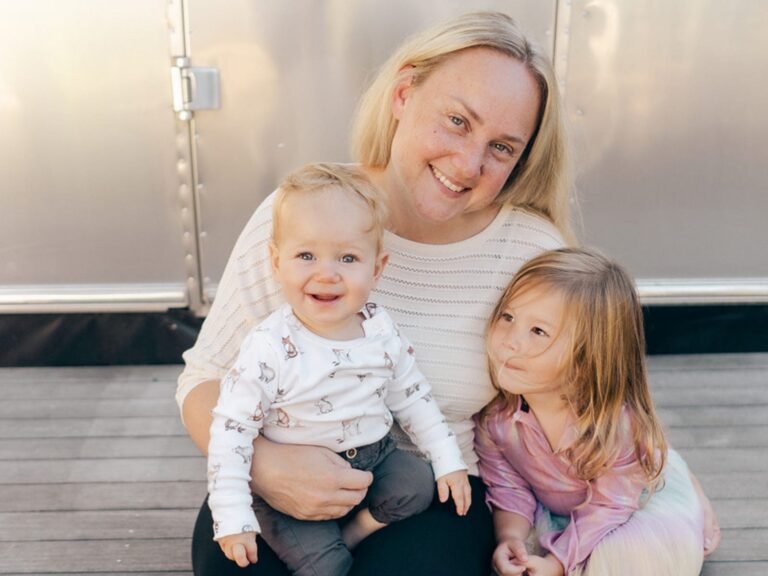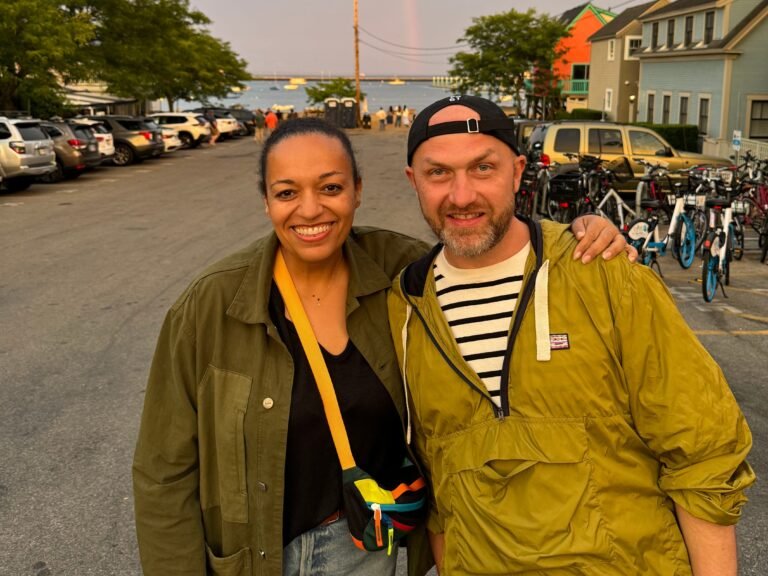
Courtesy of Nicole Johnson
- We went traditional with our first son’s name, but chose unisex names for both daughters and our second son.
- Our daughters are Kyle and Cameran, and our second son is Brooks, yes, with an “s” at the end.
- I’ll never know how life would have been different if we’d gone traditional, and I don’t care.
“We aren’t even Irish,” my Sicilian grandmother said as we perused baby names for our third child.
Naming a tiny human is difficult because it’s a name they’ll wear for their entire lives, and everyone has an opinion.
In truth, I was just humoring her. Looking through names wasn’t necessary because my husband and I had already picked one for our daughter: Kyle—a traditionally Irish name that we’d chosen for my husband and my grandmother’s husband, both partly Irish.
“Kyle,” she said, and threw her hands in the air. “It means handsome.”
I understood what really bothered her was not the origin of the name we’d chosen, but the traditional gender associated with it.
I countered, saying, “It means ‘narrow’ or ‘straight’ and it’s a unisex name. Her full name will be Kyle Marie.”
“Why can’t it just be something simple?” my grandmother asked in a final plea. “People will get confused and think she’s a boy. You already have a Cameran for a girl. Isn’t that enough?”
I named my daughters Cameran and Kyle—it’s had its challenges
Several months later, despite my grandmother’s protests and warnings, we sat in the hospital room and informed the woman who came to fill out the birth certificate of our child’s name.
I suppose I should have known when she said, “Kyle or Kylie,” that confusion would color my little girl’s name for years to come.
While I adore my daughters’ names, Cameran and Kyle, they have not come without consequence.
“Hi, I’m calling with Kyle’s test results,” the pediatrician’s office would say. “He does not have the flu.” They hadn’t looked at her chart.
“She,” I said more often than I care to count.
“I thought you had two boys,” another mother said when my girls’ names were announced at a school event, and they stood up.
The most frustrating part was not the mistakes. I understood those because I knew I had gone against the norm and broken tradition. It was people’s constant need to fix what was not broken.
“Kyle” became “Kylie,” as in, “You are Kylie’s mother.” People often attempted to correct what I’m sure they thought must have been a typo.
I named my son Brooks — yes, with an “s” at the end
Courtesy of Nicole Johnson
When I gave birth to my son, the confusion continued. “Brooks,” my grandmother said, “sounds like a girl’s name.” Here we go again, I remember thinking.
My husband, who was deeply involved with helping choose all of our kids’ names, liked Brooks because it belonged to the NHL player, Brooks Laich. He was not only a famous hockey player but also good citizen.
In 2010, Laich pulled over to help a woman change her flat tire after coming off a playoff series loss. To my husband, a college hockey player, this act of kindness meant more than Laich’s NHL status, which was a big part of why we chose the name for our son.
As Brooks got older, the confusion continued. Brook, people would say, sure, they’d heard the name wrong.
Even the act of dropping the “s” from his name did not help quell their need to make sense of a “girl” name for a boy. We were back to where we had been with his sisters.
I suppose we understood the confusion. We had created it. I guess we could have gone the traditional route we had with our oldest, Zachary. No one ever confused him for a girl and attempted to correct his name.
I wonder how life would have been different
In truth, I have wondered what doctor’s appointments and school events would have looked like if we’d gone with more traditionally feminine names like Taylor and Olivia instead of Cameran and Kyle. If Brooks had been Steven or Matthew, would things have gone differently?
I will never know. I also realize that I simply don’t care—I never did. I continue to correct people, in the kindest way possible, though I have stopped justifying my choice with, “Yes, we like boy names for girls and girl names for boys,” or “I understand, Kyle is a traditionally male name.”
After all, while Kyle is predominantly used for boys, it is unisex, as is Brooks. Now that our kids are older, ranging from 12 to 20, I know we picked the names that best represent them, whether it’s traditional or not, and I’m more than OK with that.






